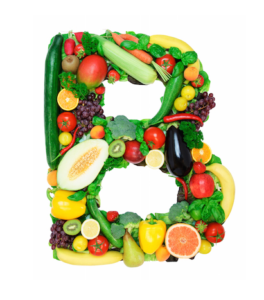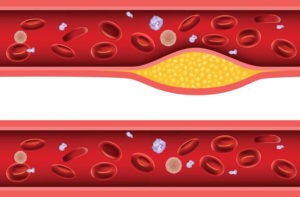Benefits of the 8 B Vitamins
 There is no doubt that B vitamins pack a power punch for your health. The 8 vitamins that make up the B complex offer a range of valuable essential nutrients that help keep you balanced both mentally and physically.
There is no doubt that B vitamins pack a power punch for your health. The 8 vitamins that make up the B complex offer a range of valuable essential nutrients that help keep you balanced both mentally and physically.
The benefits range from supporting your metabolism to providing energy by helping convert food to fuel, and regulating mood. B vitamins also help make hormones and neurotransmitters for normal and optimal brain function.
Proper Dosing of B Vitamins is Important
Awareness of proper dosing of the B vitamins is critical, as too little or too much can have a negative effect. Since B vitamins are water soluble, they don’t stay in your system for long. For this reason, it’s sensible to consume food with B vitamins throughout the day, or with multiple or slow release supplements. If you dose too high on the B vitamins, the side negative side effects may include liver toxicity, elevated blood sugar and skin pain or flushing (read more about niacin flushing here).
If you’re curious or concerned about the levels of B vitamins in your blood, it’s simple to get blood testing done to see if you have an excess or deficiency.
What Are The 8 B Vitamins?
Vitamin B complex consists of Vitamins B1, B2, B3, B5, B6, B7, B9 and B12. They’re responsible for a variety of key functions of the human body, and are important for overall health. They are available in supplement form at a variety of health outlets, or by consuming many of the fresh foods that are outlined below. The 8 B vitamins provide the following health benefits:
Vitamin B1 (Thiamine):
Vitamin B1 is responsible for the formation of new cells and tissues. It also boosts the natural immune system of the body and is also known as anti-stress vitamin.It aids in breaking down carbohydrates and fats for energy and calories. Whole grains,wheat and spinach are rich sources of thiamine.
Vitamin B2 (Riboflavin):
Vitamin B2 works as a potent anti-oxidant in the body, and destroys free radicals. It is considered an anti-aging vitamin and helps prevent heart disease. It also increases oxygen delivery to tissues by increasing the production of red blood cells.It is very effective in treating headaches and migraines. B2 is chiefly found in almonds, eggs, brussels sprouts and spinach.
Vitamin B3 (Niacin):
 One of the main function of niacin is to increase the levels of HDL (good cholesterol), and decrease levels of LDL, the bad cholesterol in blood. Therefore, it is very important in helping prevent the risk of heart attack and other diseases. It’s also topically used to help reduce acne. Yeast, red meat and green vegetables are the main sources of niacin.
One of the main function of niacin is to increase the levels of HDL (good cholesterol), and decrease levels of LDL, the bad cholesterol in blood. Therefore, it is very important in helping prevent the risk of heart attack and other diseases. It’s also topically used to help reduce acne. Yeast, red meat and green vegetables are the main sources of niacin.
Vitamin B5 (Pantothenic acid):
Pantothenic acid mainly derives its energy from fats and carbohydrates. It is responsible for the production of sex and stress hormones in both males and females. It also helps reduce wrinkles, scars and the dark circles that form under eyes. It’s found in almost every food.
Vitamin B6 (Pyridoxine):
Vitamin B6 regulates the levels of different amino acids in the blood, which protects the heart. It helps the body in producing many neuro chemicals and neurotransmitters such as serotonin,melatonin and norepinephrine, and helps the body in stabilizing mood. It also helps reduce inflammation in joints, and Rheumatoid arthritis. You can get Vitamin B6 from sources like tuna, peas, beans, chicken and brown rice.
Vitamin B7 (Biotin):
Biotin is also known as the healthy hair, skin and nails vitamin. It helps control and decrease blood sugar levels in patients with diabetes. It is also essential in pregnancy due to its healthy benefits on the growing fetus. Barley, liver, fish and egg yolks are rich sources of vitamin B7.
Vitamin B9 (Folic acid):
Folic acid is one of the most important vitamins required by the body. It is especially important for pregnant women as it helps prevent many congenital birth defects and neural tube defects such as spina bifida. It also helps prevent memory loss and is good in helping prevent depression. It is found in foods including asparagus, meat, eggs and spinach.
Vitamin B12 (Cobalamin) :
Vitamin B12 works with other vitamins to produce new cells and tissue. It is also responsible for producing red blood cells and hemoglobin. It is mainly found in animal sources such as meats, cheeses and eggs.




